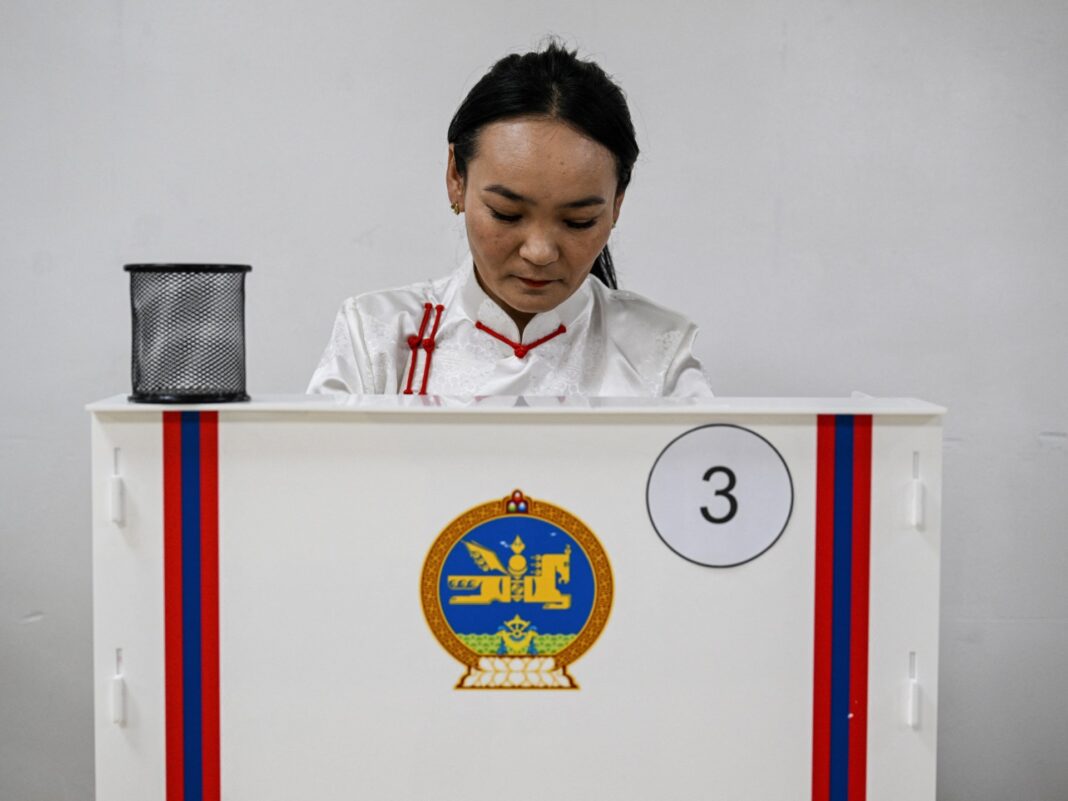The ruling Mongolian People’s Party is expected to win another term despite concerns over its rule.
Polls have opened in Mongolia where the ruling Mongolian People’s Party (MPP) is widely expected to secure victory despite deepening public anger over corruption and the state of the economy.
Voters across the vast nation, sandwiched between China and Russia, are choosing 126 members for an expanded State Great Khural, the country’s parliament.
Polls opened at 7am local time (23:00 GMT on Thursday) and close at 10pm (14:00 GMT). Preliminary results are expected within a few hours as a result of automated vote counting.
The MPP under Prime Minister Luvsannamsrain Oyun-Erdene won a landslide victory in the last elections in 2020, but there is growing frustration over endemic corruption, the high cost of living and the lack of opportunities for young people who make up almost two-thirds of the population.
Enkhmandakh Boldbaatar, 38, a voter on the outskirts of the capital Ulaanbaatar said he voted for neither the MPP nor the main opposition party, the Democratic Party, saying they also had not performed well. There are 19 parties vying for seats in the parliament.
“I’ve been living here for 38 years, yet the area is the same,” Boldbaatar told The Associated Press news agency. “Only this road and some buildings were constructed. Things would have been different if they worked for the people.”
The centre-right anticorruption HUN party is expected to increase its seats thanks to its social-media savvy, professional candidates who enjoy significant support among the urban middle classes.
“I think young people are more aware of the activities of political parties,” Norovbanzad Ganbat, a 24-year-old IT worker, told the AFP news agency. “They can see what the MPP has done in the last four years. That’s why young people don’t vote for this party.”
Fears of ‘dictatorship’
Mongolia has dropped five points to 33 out of 100 in Transparency International’s Corruption Perceptions Index, and it is currently ranked 121 out of the 180 countries and territories on the list.
It has also fallen in press freedom rankings under the MPP, and campaigners say there has been a notable decline in the rule of law.
Taking to the stage at a rally on Wednesday, Oyun-Erdene blamed his political opponents for turning Mongolia into a “land of corrupt leaders” and called for a return to “discipline”.
A survey by the Sant Maral Foundation, Mongolia’s top independent polling body, suggested more than a third of Mongolians believe the country is “changing into a dictatorship”.
The streets of Ulaanbaatar, home to almost half Mongolia’s 3.4 million people, have been decked out with colourful campaign posters touting candidates from across the political spectrum, from populist businessmen to nationalists, environmentalists and socialists.
For the first time in almost a decade, parties are required by law to ensure that 30 percent of their candidates are women.
Former President Tsakhiagiin Elbegdorj, who held office for the opposition Democratic Party from 2009 to 2017, hailed the start of the election on X on Friday morning, writing: “As the Mongolian saying goes, ‘It is better to live by your own choice than according to others’ choices.’”
“Around 260 foreign observers and three dozen journalists are present. I hope for genuinely democratic and transparent elections,” he added.
Mongolia became a democracy in 1990, ending more than six decades of communist rule.
Besides corruption, which has triggered waves of protests in recent years, major issues for voters include unemployment and inflation in an economy rocked first by the COVID-19 pandemic and then the fallout from the war in Ukraine. The country’s livestock herders were also hit by a “dzud” this year, a combination of extreme cold and drought, that killed millions of animals.







